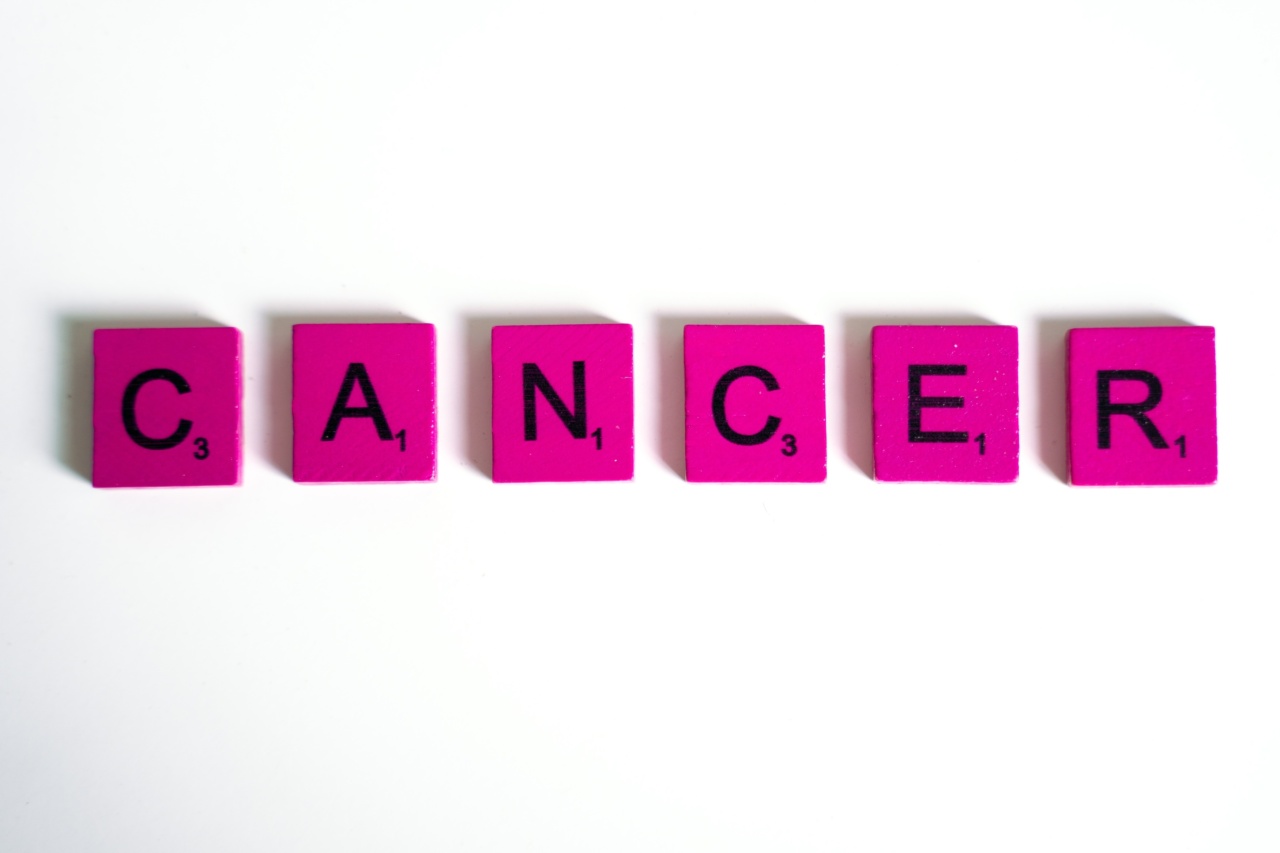Excessive alcohol consumption has long been known to have detrimental effects on our health. It is not surprising to learn that alcohol abuse can lead to various types of cancers.
Numerous research studies have established a link between heavy drinking and an increased risk of developing specific cancers. In this article, we will explore the different types of cancer that can be caused by excessive alcohol consumption.
Liver Cancer
One of the most well-known and pronounced cancers associated with excessive alcohol consumption is liver cancer. Heavy drinking substantially increases the risk of developing liver cancer.
Alcohol abuse leads to the buildup of toxic substances in the liver, causing inflammation and scarring. Over time, this can progress to cirrhosis, ultimately resulting in liver cancer.
Esophageal Cancer
Excessive alcohol consumption is strongly linked to an increased risk of esophageal cancer. The esophagus is the tube that carries food from the mouth to the stomach.
Alcohol is known to irritate the lining of the esophagus, leading to chronic inflammation. Over time, this inflammation can cause abnormal cell growth and eventually develop into esophageal cancer.
Throat Cancer
Alcohol consumption, especially when coupled with tobacco use, can substantially increase the risk of throat cancer. The excessive intake of alcohol damages the DNA in the cells lining the throat, making them more susceptible to cancerous changes.
Chronic alcohol abuse weakens the immune system, which further elevates the risk of developing throat cancer.
Breast Cancer
Studies have shown a connection between excessive alcohol consumption and an increased risk of breast cancer. Women who consume alcohol regularly, even in moderate amounts, face a higher risk of developing breast cancer compared to non-drinkers.
The exact mechanism behind this link is not fully understood, but it is believed that alcohol interferes with the body’s hormone levels, thereby contributing to the development of breast cancer.
Colorectal Cancer
Heavy drinking has been associated with an elevated risk of colorectal cancer. Alcohol consumption, especially in excess, can lead to chronic inflammation and damage to the cells lining the colon and rectum.
These changes in the colon and rectal tissues can increase the likelihood of developing colorectal cancer.
Pancreatic Cancer
Excessive alcohol consumption has been identified as a significant risk factor for pancreatic cancer. Alcohol abuse causes inflammation in the pancreas, impairing its normal functioning.
Over time, this inflammation can trigger the development of pancreatic cancer. The risk is further multiplied when heavy drinking is combined with smoking.
Mouth Cancer
Chronic alcohol abuse significantly increases the risk of developing mouth cancer. Alcohol acts as a solvent, making it easier for cancer-causing substances in tobacco to penetrate the cells lining the mouth and throat.
The harmful effects of alcohol and tobacco compound each other and escalate the chances of developing oral cancers.
Laryngeal Cancer
Heavy alcohol consumption, particularly when coupled with tobacco use, is a known risk factor for laryngeal cancer. Alcohol and tobacco together have a synergistic effect on the cells lining the voice box.
The combination of these two substances damages DNA and increases the likelihood of cancer formation in the larynx.
Stomach Cancer
Excessive alcohol consumption has been associated with an increased risk of stomach cancer. It is believed that alcohol irritates the lining of the stomach, which can lead to chronic inflammation and damage to the DNA of the stomach cells.
These changes can trigger the development of stomach cancer over time.
Rectal Cancer
Heavy drinking has also been linked to an elevated risk of rectal cancer. Alcohol abuse can directly damage the cells lining the rectum, leading to inflammation and potentially cancerous changes.
The higher the alcohol consumption, the greater the risk of developing rectal cancer.
Conclusion
The evidence is clear: excessive alcohol consumption can significantly increase the risk of developing various types of cancer. It is crucial to understand the potential consequences of alcohol abuse and take steps to protect our health.
Moderation is key when it comes to alcohol consumption, and seeking professional help if struggling with alcohol abuse is vital. By making informed choices and adopting a healthier lifestyle, we can reduce the risk of cancer and prioritize our overall well-being.






























